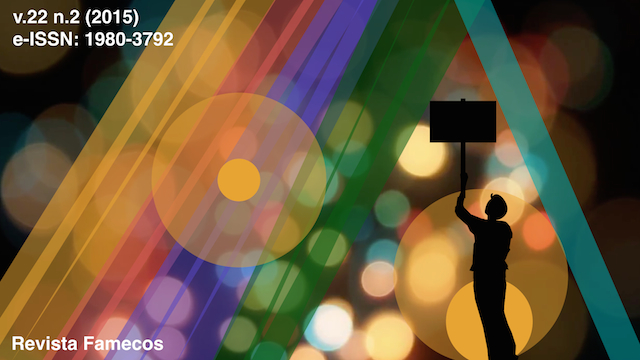e-Representación como comunicación política: Internet y democracia representativa
DOI:
https://doi.org/10.15448/1980-3729.2015.2.19717Palabras clave:
Internet y democracia, Internet y representación política, e-RepresentaciónResumen
El objetivo de este trabajo es discutir una teoría sobre comunicación política digital y representación democrática. Para ello, se analiza el lugar de la representación en las teorías política y democrática, la relación entre representación y comunicación y las posibles contribuciones de la Web a la práctica representativa. Al final, se sugiere que, al pensarse la relación entre Internet y representación, la preocupación debe ser menos la de establecer vínculos directos o interactividad entre representantes y representados, y más la de promover la participación y la deliberación en la representación, en el ambiente online.Descargas
Citas
AGGIO, C. Internet, eleições e participação: Questões-chave acerca da participação e do ativismo nos estudos em campanhas online. In: MAIA, R. C. M.; GOMES, W.; MARQUES, F. P. J. A. (orgs.). Internet e participação política no Brasil. Porto Alegre: Sulina, p.175-195, 2011.
BERGER, P. L.; LUCKMANN, T. The Social Construction of Reality: A Treatise in the Sociology of Knowledge. Nova York: Anchor Books, 1967.
BRYANT, J.; OLIVER, M. B. (eds.). Media Effects: Advances in Theory and Research. Nova York: Routledge, 2009.
CAREY, J. Communication as Culture. Nova York: Routledge, 1989.
CASTIGLIONE, D.; WARREN, M. E. Rethinking Democratic Representation: Eight Theoretical Issues. Rethinking Democratic Representation, Centre for the Studies of Democratic Institutions, University of British Columbia, 2006.
COLEMAN, S. New Mediation and Direct Representation: reconceptualizing repre-sentation in the digital age. New Media and Society, vol.7, n.2, p. 177-198, 2005.
COLEMAN, S.; BLUMLER, J. G. The Internet and Democratic Citizenship: The-ory, Practice and Policy. Cambridge: Cambridge University Press, 2010.
CHADWICK, A.; HOWARD, P. N. The Routledge Handbook of Internet and Politics. Nova York: Routledge, 2009.
DAHLGREN, P. The Public Sphere and the Net: Structure, Space, and Communica-tion. In: BENNETT, W. L.; ENTMAN, R. M. Mediated Politics. Cambridge: Cambridge University Press, p. 33-55, 2001.
GARCÊZ, R. L. de O. Lutas por reconhecimento dos surdos e conversação política no Orkut: Quando temas sensíveis definem a trajetória das discussões. In: MAIA, R. C. M.; GOMES, W.; MARQUES, F. P. J. A. (orgs.). Internet e participação política no Brasil. Porto Alegre: Sulina, p. 231-256, 2011.
Descargas
Publicado
Cómo citar
Número
Sección
Licencia
Derechos de Autor
La sumisión de originales para la Revista Famecos implica la transferencia, por los autores, de los derechos de publicación. El copyright de los artículos de esta revista es el autor, junto con los derechos de la revista a la primera publicación. Los autores sólo podrán utilizar los mismos resultados en otras publicaciones indicando claramente a Revista Famecos como el medio de la publicación original.
Creative Commons License
Excepto donde especificado de modo diferente, se aplican a la materia publicada en este periódico los términos de una licencia Creative Commons Atribución 4.0 Internacional, que permite el uso irrestricto, la distribución y la reproducción en cualquier medio siempre y cuando la publicación original sea correctamente citada.






